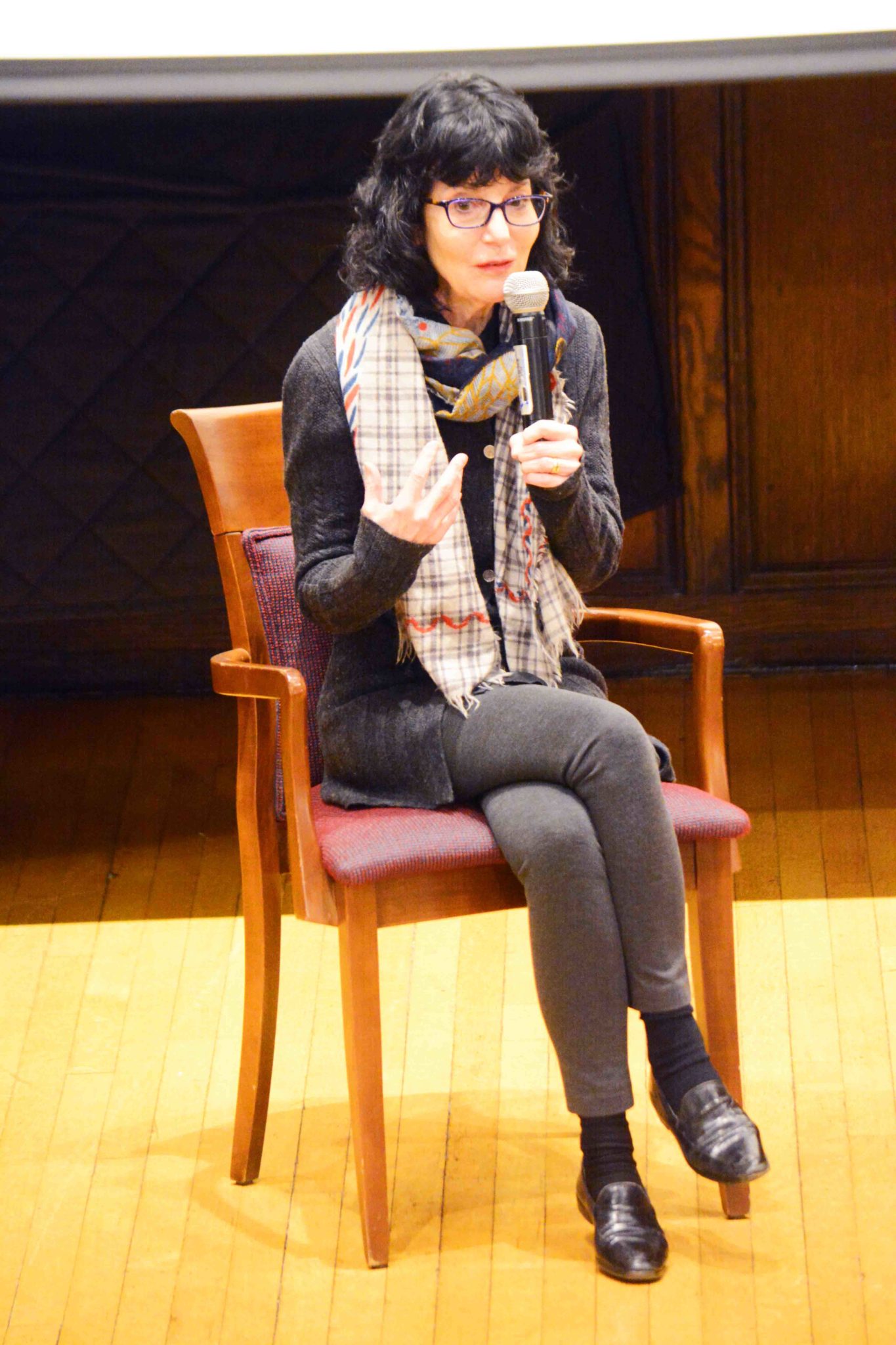
In a speech celebrating the #MeToo movement at the Golden Globes on Jan. 7, Oprah Winfrey highlighted the story of Recy Taylor, a black woman raped by six white men in 1944. On Saturday, director Nancy Buirski came to the Whitney Humanities Center for a screening of her documentary about Taylor’s experiences.
Titled “The Rape of Recy Taylor,” Buirski’s work explores Taylor’s unfulfilled quest for justice, aided by an NAACP investigator named Rosa Parks and the Jim Crow politics that underlay her assault. Joined by Crystal Feimster, an African American studies professor at Yale, Buirski led a Q&A session after the screening with a crowd of more than 150 attendees on the artistic choices she made while creating the film.
“This is another hidden story, at least for those of us not in scholarship,” Buirski said. “I believe that most of us did not know not only about Recy Taylor, not only about Rosa Parks’ early activism, but also just the ubiquitous rapes that were taking place during that period and what a tool it was of power and terrorism, and I thought that this was a story that had to be told.”
Through interviews with Taylor’s siblings and commentary from Feimster and historian Danielle McGuire, Buirski tells the story of Taylor’s life in her film. Born and raised in rural Alabama, Taylor was coming home from a church service when she was kidnapped and raped at gunpoint.
After a first grand jury consisting solely of white men refused to indict her attackers, the NAACP launched a national campaign with black journalists and newspapers to pressure the state to retry her case. With petitions from across the country flying in, the governor of Alabama ordered another investigation into Taylor’s assault — but to no avail. Another grand jury refused to indict Taylor’s attackers, and those fighting for her cause moved on to another case.
Throughout the film, Buirski emphasizes that Taylor’s story was not unique: The racialized sexual politics of the South were designed to relegate all black men and women to a decidedly inferior status. Featuring analysis by Feimster and McGuire and readings of the attackers’ testimony, the film underscores how a long history of oppression painted black women as prostitutes to be bought and sold and emasculated black men like Taylor’s father.
During the Q&A session, Feimster reiterated that Taylor’s experience was the norm, not the exception. Taylor’s story was the story of black women, the story of the terror the African-American community experienced, she said.
“It’s not about acknowledging one individual, but acknowledging why is it we cannot see black women,” she said. “As long as we focus on the one, the symbolic, then we lose the power of acknowledging black women’s experiences and existence.”
Attendees responded to Buirski’s film with an outpouring of their own stories. Tiffany Jackson MUS ’95 shared her mother’s experiences working for a white family in Alabama.
While her mother was tidying up in the house one afternoon, she said, the father of the family confronted her and suggested he wanted her to have sex with him. Although she managed to escape, Jackson said, she swore never to return to the house and was unwilling to tell the story for fear of repercussions.
“I tell her story quite often because she doesn’t tell it,” Jackson said. “She didn’t get any justice, but I think through my life I’m able to live out the reality that she was not able to.”
Buirski also reflected on the sudden relevance of her documentary and its themes — the movie was made before the October expose on Harvey Weinstein’s alleged offenses and the movement that followed, she said.
She added that these stories served only to affirm her film’s message. As one of the first women to speak out, Recy Taylor lived in a climate in which not just her job but also her life was in danger.
“I always don’t like to call this film historical,” Buirski said. “I like to think of it as reality reconsidered.”
The event was hosted by the African American Studies Department and moderated by African American Studies professor Crystal Feimster.
Will Wang | will.wang@yale.edu
Correction, Jan. 22: A previous version of this article mistakenly stated that the screening event was hosted by the Yale Center for the Study of Race, Indigeneity, and Transnational Migration. In fact, it was hosted by the African American Studies Department.







